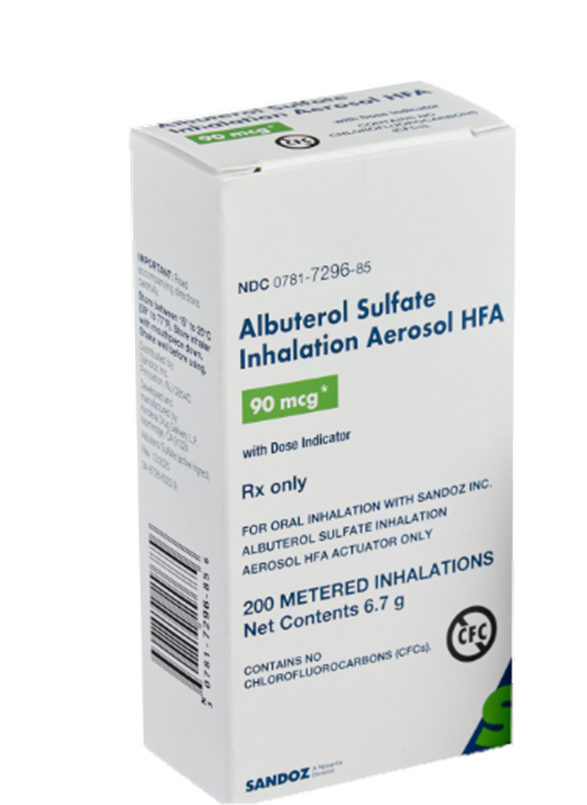A nurse in an emergency department is caring for an adult who is experiencing an acute asthma attack. Which of the following medications should the nurse expect to administer?
Montelukast
Budesonide
Prednisone
Albuterol
The Correct Answer is D
Choice A reason: This statement is incorrect, as montelukast is a leukotriene receptor antagonist that is used for long-term control and prevention of asthma symptoms. It is not effective for acute asthma attacks, as it does not provide immediate bronchodilation.
Choice B reason: This statement is incorrect, as budesonide is an inhaled corticosteroid that is used for long-term control and prevention of inflammation in asthma. It is not effective for acute asthma attacks, as it does not provide immediate relief of bronchospasm.
Choice C reason: This statement is incorrect, as prednisone is an oral corticosteroid that is used for short-term treatment of severe asthma exacerbations. It is not effective for acute asthma attacks, as it takes several hours to exert its anti-inflammatory effect.
Choice D reason: This statement is correct, as albuterol is a short-acting beta2 agonist that is used for quick relief of acute asthma symptoms. It provides rapid bronchodilation by relaxing the smooth muscles of the airways.

Nursing Test Bank
Naxlex Comprehensive Predictor Exams
Related Questions
Correct Answer is A
Explanation
Choice A reason: Applying and releasing elbow restraints every hour prevents the infant from touching or injuring the surgical site, while allowing some movement and circulation. This is a standard nursing intervention for infants who have undergone cleft palate repair.
Choice B reason: Keeping the infant supine is not recommended, as it increases the risk of aspiration and bleeding. The infant should be placed in a side-lying or upright position to facilitate drainage and prevent pressure on the suture line.
Choice C reason: Feeding the infant with a spoon for 48 hours is not necessary, as it may cause discomfort and trauma to the palate. The infant can be fed with a special nipple or a syringe with a rubber tip that delivers small amounts of formula or breast milk to the side of the mouth.
Choice D reason: Suctioning the mouth with an oral suction tube is contraindicated, as it may damage the palate and cause bleeding or infection. The nurse should use a bulb syringe to gently suction the nose and mouth if needed.

Correct Answer is D
Explanation
Choice A reason: This statement is incorrect, as the child should take the enzymes before or with meals, not after. Taking the enzymes after meals may reduce their effectiveness and cause malabsorption of nutrients.
Choice B reason: This statement is incorrect, as the child should take the enzymes within 30 minutes before meals, not 2 hours. Taking the enzymes too early may cause them to be inactivated by the stomach acid and lose their function.
Choice C reason: This statement is incorrect, as the child does not take the enzymes to improve her metabolism, but to replace the deficient pancreatic enzymes that are needed for digestion. The child has cystic fibrosis, a genetic disorder that affects the exocrine glands and causes thick mucus to block the ducts of the pancreas.
Choice D reason: This statement is correct, as the child takes the enzymes to help digest the fat in foods, as well as other nutrients such as protein and carbohydrates. The enzymes contain lipase, amylase, and protease, which break down fat, starch, and protein respectively.
Whether you are a student looking to ace your exams or a practicing nurse seeking to enhance your expertise , our nursing education contents will empower you with the confidence and competence to make a difference in the lives of patients and become a respected leader in the healthcare field.
Visit Naxlex, invest in your future and unlock endless possibilities with our unparalleled nursing education contents today
Report Wrong Answer on the Current Question
Do you disagree with the answer? If yes, what is your expected answer? Explain.
Kindly be descriptive with the issue you are facing.
